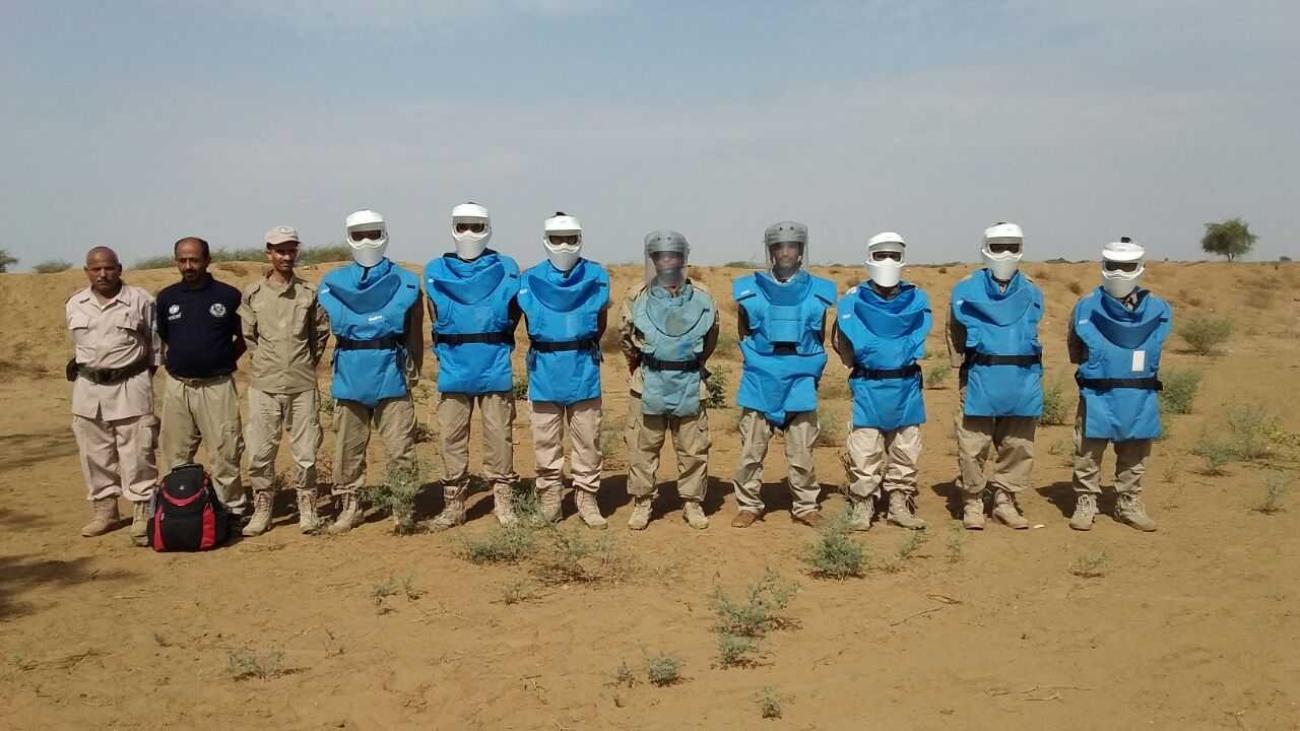Red Sea Mills free of explosives for the first time in eight months

The presence of explosive remnants of war (ERW) throughout Yemen poses a major risk to civilians and hampers humanitarian assistance, including food delivery.
The presence of explosive remnants of war (ERW) throughout Yemen poses a major risk to civilians, with landmines and other ERW causing 233 civilian casualties in the last year alone. Beyond the immediate physical danger, ERW have obstructed humanitarian assistance – including the delivery of food – while 10 million Yemenis are close to starvation.
Situated near the port of Hodeidah, where humanitarian supplies are received, the Red Sea Mills has been storing 51,000 metric tonnes of wheat – enough to feed 3.7 million people for an entire month. However, since last September, the site has been inaccessible to humanitarian staff – not only because of conflict in the area, but also because it was riddled with unexploded explosive weapons.
This changed on 5 May, when – for the first time in 8 months – the Yemeni Executive Mine Action Center (YEMAC) declared the entire Red Sea Mills compound free of ERW.
The United Nations Development Programme (UNDP) has been working with YEMAC to improve clearance capacity to conduct precisely this type of operation. Specifically, UNDP facilitates training of YEMAC staff in the disposal of explosive ordnance, provides supplies such as fuel and batteries for metal detectors, and contributes financial incentives to demining staff.
In Hodeidah, team leaders and new staff received additional training, prior to this dangerous assignment. Then, on 21 March, a team of 58 YEMAC deminers began clearance of the Red Sea Mills compound, working 30-hour weeks, except when access to the area was obstructed by conflict.
“It is extremely dangerous work,” says YEMAC Site Supervisor, Abdulsalam Saeed, “but our staff are well-equipped for the job, and they know that they are saving lives. Now, the compound can be safely entered and humanitarian efforts can resume.”
Because of its location and the use of artillery in the area, the compound is subject to potential recontamination. YEMAC therefore remains in constant contact with the Red Sea Mills management and approximately 30 deminers are on stand-by for quick action, as required.
Because of UNDP Mine Action support, approximately 1200 YEMAC staff have been trained to date, with 50 being specially trained in Explosive Ordnance Disposal through UNDP’s partners, the Danish Demining Group and The HALO Trust. More than 125,000 explosive items have been cleared from over 6.6 million square meters of land throughout Yemen in the last year.
UNDP is also directly helping the Hodeida ceasefire agreement by coordinating mine action activities in support of the redeployment of the forces.
The project will continue to develop the capacity of the people and institutions of Yemen to combat the risks posed by mines and ERW though institutional development, technical capacity building and logistics support. Ultimately, the UNDP Mine Action Project is intended to support the clearance of over 30 million square meters of land and destroy more than a million mines and other unexploded ordnance. The mine risk education activities of YEMAC and other partners are designed to reach over 12.5 million people and directly assist all those in need with various aid. An estimated 15 million people throughout Yemen will benefit.
To learn more about the UNDP Emergency Mine Action project, go to: http://www.ye.undp.org/content/yemen/en/home/projects/mine-action.html

